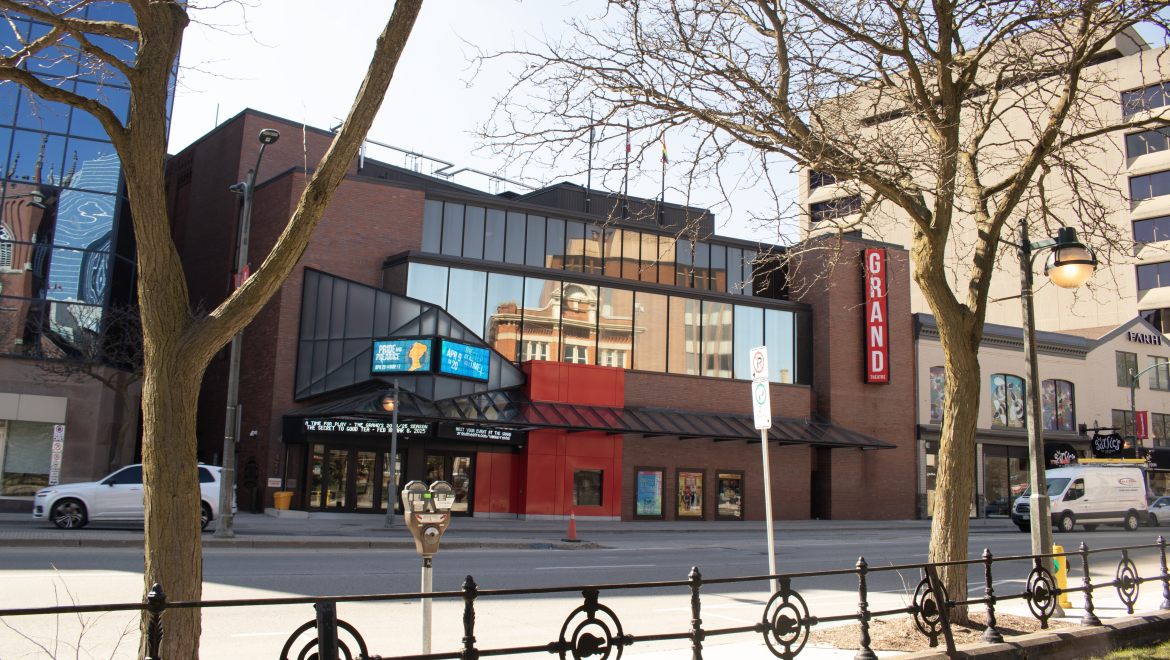Equity, Diversity, Inclusion & Reconciliation (EDI-R)

The Grand Theatre is on a journey towards greater centering of Equity, Diversity, Inclusion and Reconciliation (EDI-R) in our work. We invite members of our community to read more about our values, leadership commitment and advisory committee structure.
Our Values
We value Diversity by ...
- Accepting, respecting, and valuing individual differences.
- Capitalizing on the diverse backgrounds and experiences of our staff, board members, donors, sponsors, and community members.
We value Inclusion by ...
- Identifying, addressing, and removing barriers in our organization's processes, policies, and practices.
- Facilitating opportunities that result in effective and meaningful participation within our organization.
- Creating ideas and solutions built upon diverse perspectives.
We value a Culture in which ...
- People are treated with dignity, respect, and fairness.
- Harassment and discrimination are not tolerated.
- Self-awareness and personal accountability are expected.
We Commit to Reconciliation…
- Through meaningful consultation and building respectful relationships with Indigenous artists, professionals, staff, and community members.
- Educating theatre members and ourselves on Indigenous history and culture and actioning intentional reconciliation.
Leadership Commitment
With new leadership at the Grand, our Leadership Commitment Statement may be viewed below. Questions regarding the Leadership Commitment may be directed to either the Executive Director or Artistic Director.
Lyndee Hansen, Executive Director, lhansen [at] grandtheatre.com (lhansen[at]grandtheatre[dot]com )
Rachel Peake, Artistic Director, rpeake [at] grandtheatre.com (rpeake[at]grandtheatre[dot]com)
View the Leadership Commitment Statement here.
Actions
Review the 2025 EDI-R Action Plan
The Grand Theatre's EDI-R Advisory Committee
The Equity, Diversity, Inclusion, and Reconciliation (EDI-R) Advisory Committee has been established to provide support and guidance to the implementation of EDI-R actions at the Grand Theatre. Acknowledging a long history of oppression, exclusion, and a lack of representative voices of equity-denied communities throughout the ecosystem of theatre, the Grand Theatre has committed to a journey of listening, learning, unlearning, and action that is informed by equity-denied communities and the principle of “Nothing About Us, Without Us.”
Committee Mandate and Terms of Reference
The Equity, Diversity, Inclusion and Reconciliation Committee provides counsel and recommendations to the management team, ensuring accountability and fostering a culture of EDI-R. The management team will utilize this guidance to inform their decisions, which will be communicated to the Board and the broader Grand Theatre community as needed.
The EDI-R Committee’s terms of reference may be reviewed here.
Current EDI-R Committee Members
Sukhveer Bains
Paul Fujimoto-Pihl
Lyndee Hansen
Dr. Nicole Kaniki (external facilitator, advisor and ombudsperson)
Natalie Kearns
Matt Parr
Rachel Peake
Breanne Ritchie (chair; staff facilitator)
Ali Samuel
Vanessa Spence
Jennifer Slay
Nicole Wilson
Contacting the Committee:
We invite Grand Theatre staff, volunteers, artists, and members of our communities to bring forward topics and concerns to the Grand’s EDI-R Committee. Correspondence may be addressed, in confidence, to: EDIR [at] grandtheatre.com (EDIR[at]grandtheatre[dot]com). All submissions will be received confidentially by the co-chairs, recording secretary or the committee’s external facilitator. We welcome all submissions, and are committed to bringing forward topics while respecting the privacy and wishes of the contributor, and respecting the organization’s legal obligations.
Contact the Grand Theatre’s EDI-R Advisor & Ombudsperson
The Grand Theatre is partnering with Dr. Nicole Kaniki of Senomi Solutions to act the theatre’s EDI-R advisor and ombudsperson. We invite anyone wanting to discuss the Grand’s EDI-R actions with an impartial advisor to reach out to Nicole directly. Nicole will bring forward topics, respecting the privacy and wishes of the contributor, and respecting the organization’s legal obligations.

About Nicole: Nicole Kaniki is the director of Senomi Solutions Inc., an equity, diversity, and inclusion (EDI) consulting company based in London, Ontario. She supports institutions and organizations in developing and implementing EDI strategies and offers education, training, coaching, and advisory consultation support and services. Grounded in social justice, she advocates for the needs of equity-denied groups throughout her practices and amplifies marginalized and minoritized voices.
nicole.kaniki [at] senomisolutions.com (Contact Nicole)
Previous Statements
- March 2022
Anti-Oppression Mission Statement
Institutions across Canada are being called upon to recognize and address historical and contemporary practices that have resulted in and perpetuated social inequity and harm.
We at the Grand Theatre recognize and acknowledge our part in this history and current reality. The Grand Theatre has a responsibility to take decisive action to ensure that the theatre is an inclusive and accessible place. To this end, we will name, address, and eliminate harmful behaviours, practices, and inequities that we have both produced and reproduced. Our Anti-Oppression work will examine how race, gender, class, region, religion, ethnicity, sexuality, ability, and all intersections of those categories interact with our organizational processes, so that we do not reproduce harm in our hiring, programming, and daily business operations.
While the Grand Theatre has benefitted from diverse cultures through performances on our stages, we have not fully acknowledged our cultural impact on these communities.
We have much to do to build trust, consistency, and accountability as allies with Black, Indigenous, People of Colour, and other marginalized groups. Therefore, we will remove systemic barriers to participation and ensure our organization is a physically and emotionally safe space for BIPOC and other marginalized groups at all intersections of identity.
As well, we will deliberately seek out and recruit BIPOC and other marginalized groups to work and participate at every level of our organization ensuring that people are welcomed, respected, supported, and valued in our theatre.
We commit to building and fostering authentic and sustained relationships with the communities we value but have excluded.
Through the work described above, we will achieve an accessible, equitable, and inclusive Grand Theatre community of artists, audiences, donors, boards, and staff.
This will be the foundation of our work and practice at the Grand Theatre.
- February 2021
Commitment to on-going Anti-Oppression work
Following both the tragic death of George Floyd in May of 2020, and the subsequent public actions via Black Lives Matter marches around the world, leadership at the Grand Theatre felt compelled to examine the theatre’s own history and complicity in systemic racism within our community.
In this, the final week of Black History Month 2021, the Grand Theatre is publicly acknowledging the need within the theatre community to dismantle the systemic racism and oppressive history of which they have been a part. Acknowledging their participation in this history required reflection, research, and a plan to move forward, the Grand announced that during the past nine months, the Board and Staff have embarked upon the first phase of a journey to disrupt the cycle of oppression, marginalization, and exploitation. The work required to move forward towards a more just and equitable company and industry has begun.
Readers may access the full press release by clicking here.
To guide Board and Staff through the required first phases of unlearning and re-learning, the Grand retained the services of E.B. Smith of HC Smith Ltd. Both an actor and former member of the Grand’s Board of Directors, E.B.’s unique perspective was instrumental in assisting with the establishment of the Grand’s Anti-Oppression Committee, comprised of both Staff and Board members, the development of the Anti-Oppression mission statement, and executing a strategy for ongoing, meaningful sets of internal conversations across and between departments.
The mission statement, as developed by the eight-member Anti-Oppression Committee and unanimously approved by the over 70 members of the Grand’s Board and Staff, is a fluid, working document intended to inform the choices we make, and the directions we take in our everyday policies and practices.
.png)



